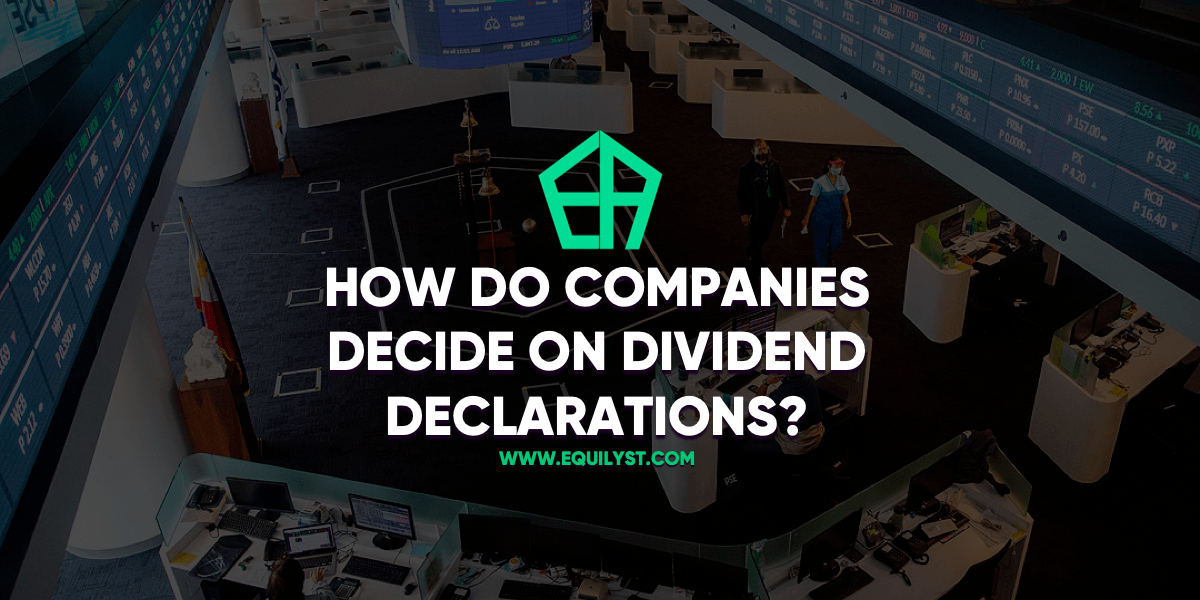

Informational
The size of a dividend is a decision made by the company’s board of directors. Publicly-listed companies do have an obligation to act in the best interest of their shareholders, which often involves returning value to shareholders through dividends or stock buybacks.
However, the decision to pay dividends, and the size of those dividends, depend on various factors such as the company’s financial performance, profitability, cash flow, growth opportunities, and overall financial health. The board of directors considers these factors when determining whether to pay dividends and how much to distribute to shareholders.
The board of directors of a publicly-listed company makes decisions about dividends based on various factors and considerations. Here’s a breakdown of how these decisions are typically made:
The board reviews the company’s financial statements, including income statements, balance sheets, and cash flow statements. They assess the company’s profitability, liquidity, and overall financial health. A company with consistent profits and healthy cash reserves is more likely to pay dividends.
Dividends are often paid out of a company’s earnings. If a company is making profits, the board may decide to distribute a portion of these earnings to shareholders in the form of dividends.
Positive cash flow is crucial for paying dividends. Even if a company is reporting profits, if it doesn’t have sufficient cash flow to cover its dividend payments, it might reconsider or reduce dividends.
The board considers the company’s existing and future debt obligations. It’s important to ensure that paying dividends won’t compromise the company’s ability to meet its debt commitments.
Companies often retain earnings to reinvest in the business for expansion, research and development, acquisitions, or other strategic initiatives. The board evaluates these investment opportunities against the option of paying dividends.
The board also takes into account the expectations and preferences of shareholders. Regular dividends are often seen as a sign of financial stability and can attract long-term investors.
Companies need to comply with legal and regulatory requirements regarding the declaration and payment of dividends. Failure to comply with these regulations can have legal implications.
Boards can decide whether to pay cash dividends, stock dividends (additional shares of stock), or property dividends (non-cash assets). The type of dividend can depend on the company’s financial situation and the preferences of shareholders.
Some companies have a formal dividend policy that outlines the criteria and guidelines for paying dividends. This policy helps in providing consistency and predictability to shareholders.
Economic conditions, market trends, and industry standards also play a role. During economic downturns or periods of uncertainty, companies might be more cautious about dividend payouts.
Shareholders may also have a say in dividend decisions through voting, especially in cases where there are significant profits, and investors expect returns on their investments.
Ultimately, the decision-making process regarding dividends is complex and involves a careful balancing act between the interests of shareholders, the financial health of the company, and its strategic objectives. Boards of directors typically exercise their business judgment to make these decisions in the best interest of the company and its shareholders.
Founder and CEO at Equilyst AnalyticsExperience the expertise of Jaycee De Guzman, the brain of Equilyst Analytics, renowned for his unique data analysis. He is a computer scientist and a self-taught digital marketing strategist and agriculturist. Since Equilyst Analytics’ founding in 2012, over 10,000 local and foreign clients have consulted with Jaycee de Guzman on crypto and stock investments.
Latest posts by Jaycee De Guzman (see all)